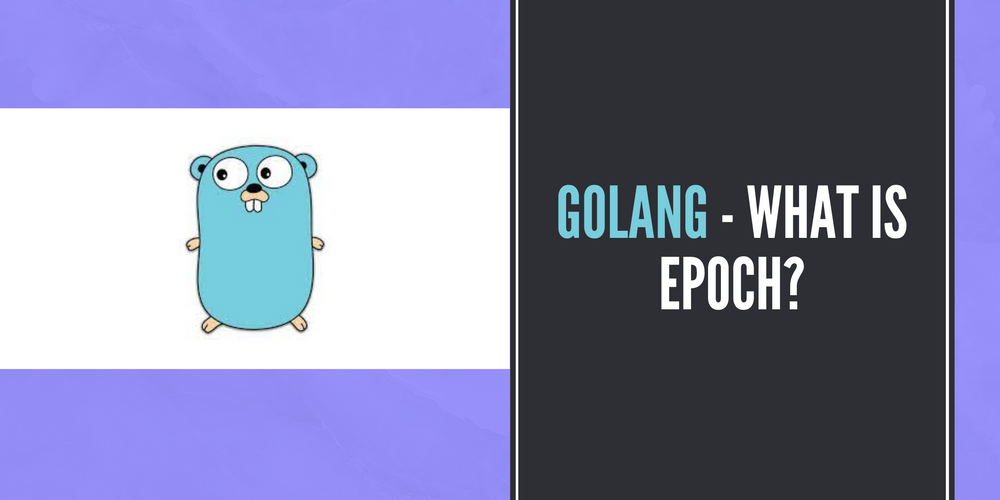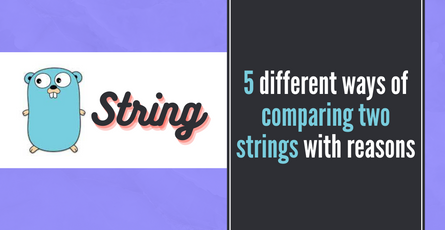
Golang - What is epoch?
What is epoch value? Learn about how to calculate the epoch value in Go.-
 Sriram Thiagarajan
Sriram Thiagarajan
- April 4, 2022
What is Epoch?
Epoch is a point in time chosen as the reference point. It helps in measuring other time values with respect to the Epoch value. For instance, if you are considering Jan 1, 1970 as an epoch value, then any time after that point can be identified with a single long number. So a number like “86400” can be interpreted as the number of seconds passed after that epoch reference point and it is “Jan 2, 1970 00:00:00 UTC”
Epoch value in Computing depends on the computer system in which it is calculated. It is calculated in terms of seconds or clock cycle (tick) which has elapsed after the initial epoch reference point.
Why is Epoch useful?
It is easy to calculate the difference between two timestamps using epoch values. Since both the timestamps can be represented in a single numerical value, the difference between the two numerical values will give the time difference.
Let’s look at an example
| Date | Epoch |
|---|---|
| Monday, 4 April 2022 13:17:16 | 1649078236 |
| Saturday, 2 April 2022 06:17:16 | 1648880236 |
Time difference = 198000 seconds
Converting the seconds to days = 2 Days 7 Hours
Epoch values of different operation system
Below table represents the epoch value based on the operating system (OS)
| Operating System | Epoch |
|---|---|
| Unix | January 1, 1970 |
| Windows | January 1, 1601 |
| Mac OS | January 1, 1904 |
| POSIX | January 1, 1970 |
Note: Maximum value which can be stored in the timestamp represented in epoch format also depends on the word length (number of bits) of the operating system. Unix system with a word length of 32-bit will reach the maximum value on January 19, 2038.
How to convert time into epoch value in Go?
You can use the time package in Go to get the current time in epoch representation.
package main
import (
"fmt"
"time"
)
func main() {
currentTime := time.Now()
// Epoch time in Seconds
fmt.Println(currentTime.Unix())
// Epoch time in Milliseconds
fmt.Println(currentTime.UnixMilli())
}Output
1649080363
1649080363834How to convert epoch value to time in Go?
You can use the same time package in go to convert the epoch value to time.
Syntax of time.Unix()
func Unix(seconds int64, nanoseconds int64) TimeThe first parameter is the second value if you have the epoch value in seconds. Pass 0 if the value is in nanoseconds
The second parameter is the nanosecond value. Pass 0 if you have epoch in seconds
Example of time.Unix()
package main
import (
"fmt"
"time"
)
func main() {
// Convert epoch in seconds to time
fmt.Println(time.Unix(1649080363, 0))
}Output
2022-04-04 13:52:43 +0000 UTCTable for the time period and epoch value
Below is the table if you want to convert the epoch value to the time period for calculation
| Time period | Epoch value |
|---|---|
| 1 minute | 60 |
| 1 hour | 3,600 |
| 1 day | 86,400 |
| 1 month | 2,419,200 |
| 1 year | 29,030,400 |


